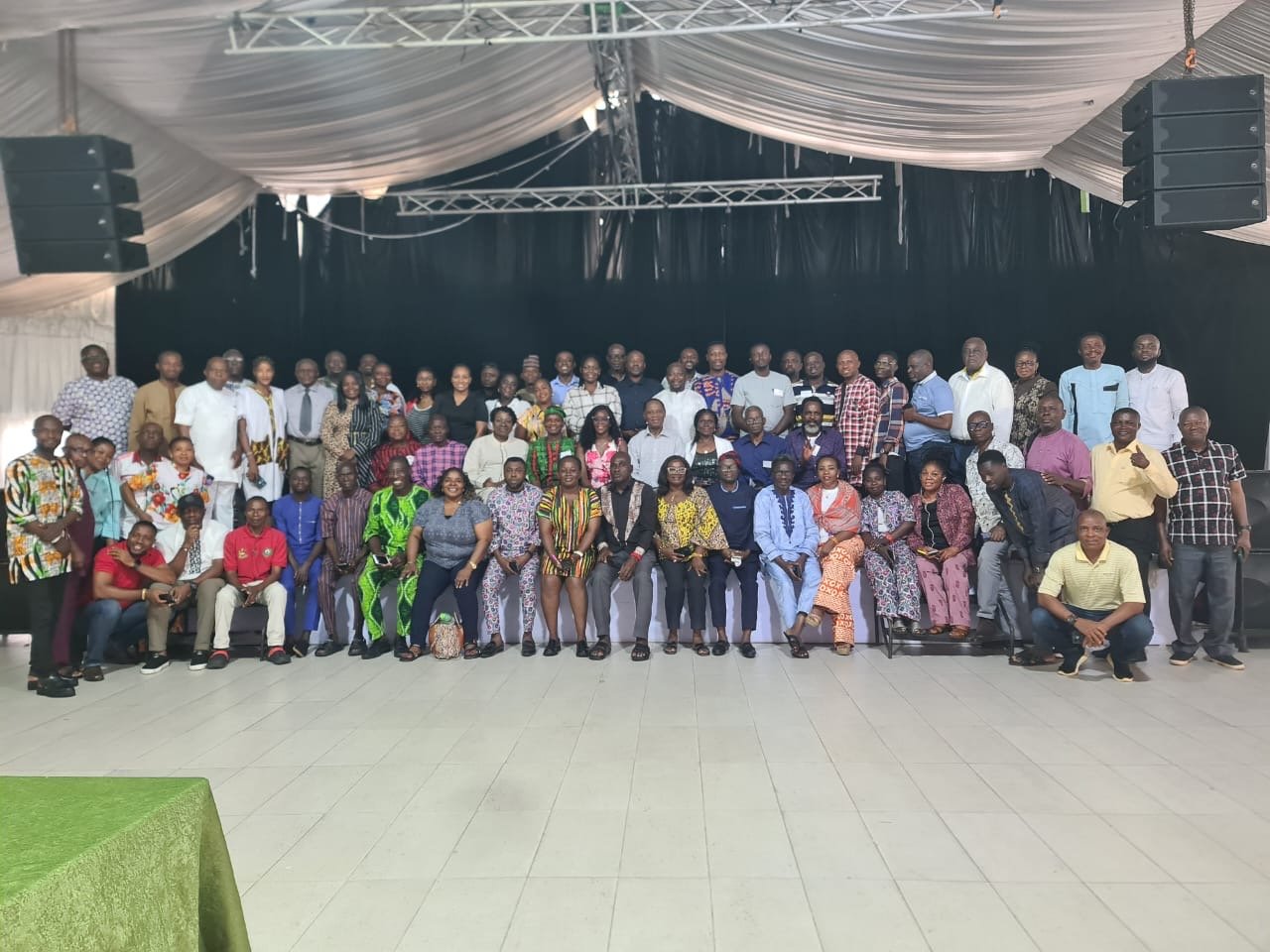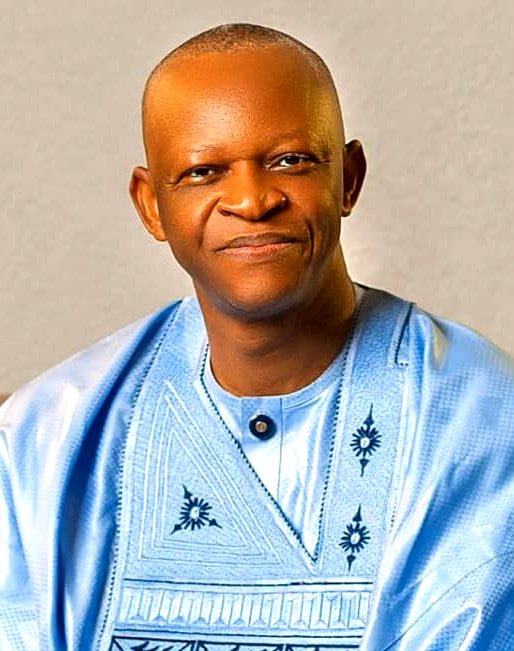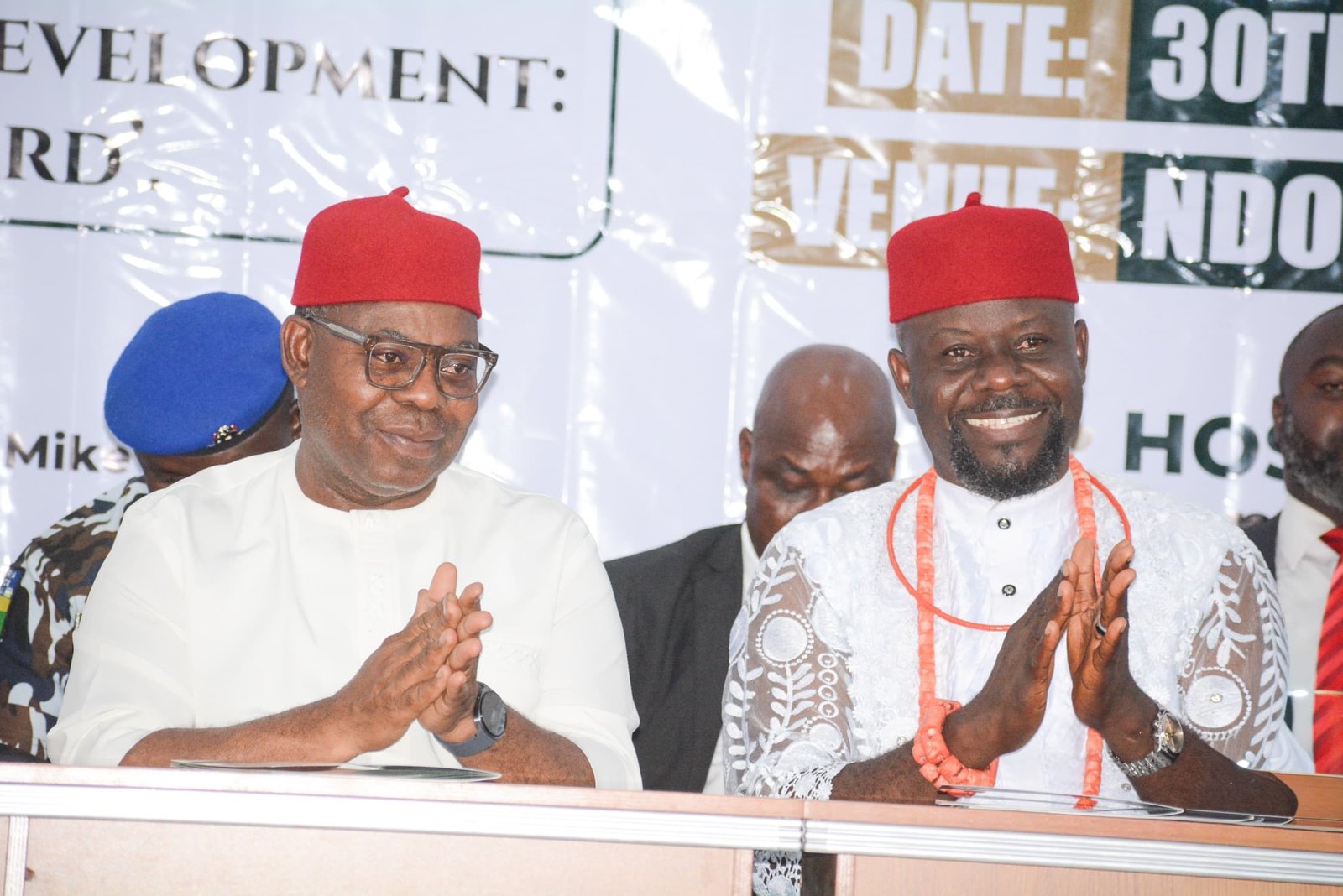Officials and participants at the workshop in Port Harcourt, Rivers state…recently.
By Anietie Akpan
The United Nations Children’s Fund (UNICEF) and University dons have rested squarely challenges faced by children in the society in the hands of adults and parents.
Such challenges or vices include bullying, taking arms, drug abuse or use, prostitution, child labour , underage prostitution, child marriages and others are all caused by adults.
One of the facilitators, Dr Jide Johnson in his presentation at the “CRIB/UNICEF Workshop: Ethical Journalism and Child Rights Reporting on October 22 to 23” in Port Harcourt on “The Foundation of Child Rights”, said children suffer immensely through the actions of the adults as casualties of wars and violence as they are; “victims of racial discrimination, aggression, foreign occupation and annexation; refugees and displaced children (no homes; no roots), disability and victims of neglect”
He said, “Malnutrition and hunger, infectious diseases, poverty and deprivation, cruelty and exploitation, hunger and homelessness, epidemics, illiteracy and environmental degradation” set in.
Johnson listed critical challenges facing children to include early marriage, genital cutting, rape, child trafficking, child prostitution, child Labour, and many others as going by current realities, “each day children die of malnutrition and diseases including HIV/AIDS, lack of clean water, inadequate sanitation, violence, and the effects of drug abuse”.
The Child Rights Convention (CRC 1989), Johnson said, “is a World Declaration on Survival, Protection and Development of Children . The CRC was adopted by the General Assembly resolution in 20 November, 1989 and came into force in September 1990. It has now been ratified by all countries except the United States and Somalia.
“The provisions of the CRC can be summarized under Four Pillars of Rights (Basket), Right to Survival, Right to Development, Right to Protection and Right to participation”.
To ensure better deal for the Nigerian child, the erudite scholar said, the “Nigerian Government ratified the CRC in 1991 and African Charter in 2000. The Child Rights Acts(2003) CRA is the domestication of the instruments of CRC 1989 and African Charter of 1990.
The Basic Provisions of CRA is “No Nigerian child shall be subjected to physical, mental or emotional injury, abuse or neglect, maltreatment, torture, inhuman or degrading punishment, attacks on his/her honor or reputation”
Children under the CRA, 2003, are expected to respect parents and elders, work for the cohesion of the family, respect and ensure the ideals of freedom, equality, humaneness and justice for all persons while parents on the other hand are “compelled in every action concerning a child to be guided by the best interests of the child, provide guidance, education and training for the child and ensure immunization of their children against diseases”.
He said Child rights is not about indulging the children but “is about responsibility of parenting and society to Child’s Survival, Development ,Protection and Participation”.
The training programme therefore urged the media to go all out and address all the negative narratives and protect the rights of children though ethical reporting as the adult directly or indirectly lure children into all these and turned around to heap the blame and burden on the children.
That the media should refrain from doing reports or casting headlines that tend to stigmatize the child or re victimize them all in the name of breaking the story or selling their newspapers or attracting viewers or readerships, hence should stop the use of harmful words and phrases.
Deliverying a keynote address, the Chief of Field Office, UNICEF Port Harcourt, Dr Ansalem Audu, said the power of the media is shaping children’s lives as the media has the power to amplify the voices of children, highlight their struggles, and bring attention to issues that affect their well-being. However, with this power comes a major and great responsibility.
He said, the way we report on children and the stories can have a lasting impact on their lives hence the need on ethical reporting matters.
Ethical reporting, he said, “builds trust and heals division. In a nation or society with diverse ethnicities, religious and perspective, the media is the glue that can hold people together or the wedge that can divide them apart. Ethical journalism characterized by accuracy, fairness, and balance is the antidote to misinformation and hate speech.
“When you verify a fact before publishing, when you present multiple sides of the story, you are not just being professional, you are building a foundation of trust with your audience. In the fragile context of our situation, especially in the region that you came from, where insecurity, tension exists, responsible reporting can cool tempers, promote dialogue, and foster peace. At the same time, irresponsible reporting can inflame passions with devastating consequences.
“The second reason is that ethical reporting protects the vulnerable, especially children and women. This is a point close to my heart and the work of our organization UNICEF. Children are not just adults, they are vulnerable.
Their minds are impassionable and their futures are shaped by how we represent them. Ethical reporting means protecting their identity. It means never publishing a child’s name or image in a way that would stigmatize them, expose them to retaliation, or re-traumatize them, especially children affected by violence, conflict, or abuse.
It means giving them a voice, not speaking for them. It involves interviewing children with dignity and consent, allowing them to share their experience in a safe and respectful manner. It means prioritizing their best interests.
He said, “a sensational heading about a child might sell your newspapers, but an ethical story protects the child’s right to a future free from shame and harm. You are not just reporters, you are guardians of their dignity. Why do these ethical guidelines exist? They exist because we have seen damage when they are ignored and the damage can be devastating”.
Citing an instance of a young girl who has survived abduction and gender-based violence, Audu stated that the consequence of bad or unethical reporting can leave a child traumatized and terrified and “that child is permanently stigmatized within her community. In this context, her image before the community is damaged. This may harm her prospect of marriage and her chance of social integration.
“She becomes a target of gossip and shame. This act of reporting victimizes her and inflicts on her a second trauma that can be more lasting than the first. An ethical approach will use a pseudonym and protect her location, allow her to heal and leave her life in dignity.
“As a result of the graphic and sensationalist detail, a report details a violent attack on a school. In describing the event, it includes horrific details of the violence witnessed by children or show graphic images of injured or deceased children. And the consequence is, the sensationalism causes immense psychological harm to the children and it re-traumatizes the child survivors who read it.
“It triggers anxiety and fear in children across the region who see these images, making them afraid to go back to school. The story says out of fear, but because of her children’s mental well and because of her children’s mental being. The ethical approach is to report the fact of the attack without resorting to graphic details that serve no public interest, but only cause harm”.
In the case of exploitative interview, the UNICEF Chief said, “a journalist throws a microphone in the face of a child who has just been rescued or has witnessed a terrible event, asking leading questions like, how do you feel? Or describe the man who attacked you. The consequence is, there’s a direct exploitation of a child’s trauma for a sound bite.
“It forces the child to relive the horror immediately without any psychological support or consent. The child is used as a prop for drama. The ethical approach is to prioritize the child’s welfare.
“Interviews should only be conducted if necessary with the consent of a and a trained psychologist present in a safe and private environment and with no pressure. The third reason is that ethical reporting enhances credibility and professionalism. In an era of social media chaos, where everyone is a citizen journalist, your professional ethics are what sets you apart.
“They are your brand. Media houses and journalists known for their integrity have become the go-to sources for truth. They build a loyal audience and trust them not to be swayed by political pressures, financial inducements, or driver sentiment”.
“The credibility is your most valuable asset”, he said, adding, “I am not blind to the challenges you face. You operate under various pressures, security threats, and sometimes immense political pressure.
“The temptation to sectionalize, to take shortcuts, or to bow to influence is real. But it is precisely because of these challenges that your ethical commitment to reporting, especially for children, matters most, not less. Your courage to report truthfully and fairly is a profound act of patriotism”
Therefore, “at UNICEF, we believe in the importance of ethical reporting on children and we work with journalists to build capacity, provide training and resources to enhance knowledge and skills, promote child-centered reporting, and encourage journalists to prioritize children’s perspectives and experiences. We support responsible reporting, foster a culture of ethical reporting that prioritizes children’s well-being. We are calling you to action.
“As journalists, you have a critical role in shaping the narrative on children’s issues. I urge you to prioritize children’s best interests. Ensure that your reporting does not harm or exploit children.
“Seek out diverse perspectives and include children’s voices and experiences in your reporting. Report with empathy and accuracy. Balance your reporting with sensitivity and fact-based information.
“Therefore, as you engage in these two days of training, I urge you to see to it, not as a critic but as an empowerment, to be a stickler for fact-checking in the race to break news. Let accuracy be your compass. Always ask yourself, am I protecting the vulnerable in this story? Let the best interests of the child be a non-negotiable principle”.
He charged journalists to balance their stories, seek out multiple perspectives to give the audience and readers a complete picture. Hold each other accountable and champion ethics within your newsroom and among your peers.
In conclusion, Audu stated, “ethical reporting on children is not just a moral imperative, it is a professional obligation. By working together, we can create a safer, more supportive environment for Nigerian children to thrive”.
In his welcome remarks, the Permanent Secretary, Federal Ministry of Information and National Orientation, Mr. Ogbodo Chinasa Nnam said, the media holds immense power — the power to inform, to inspire, and to hold institutions accountable. “But with that power comes a profound responsibility: to report with integrity, sensitivity, and respect for human dignity. When it comes to stories involving children, that responsibility becomes even greater. Every image, every word, and every frame we publish can have lasting consequences on a child’s life, safety, and future”.
The Permanent Secretary who was represented by the Assistant Director/ Head, Child Rights Information Bureau (CRIB), Federal Ministry of Information and National Orientation, Mr. Falayi Temitoye, pointed out that the training was designed to “help us reflect on our ethical obligations as journalists, explore best practices for reporting on children’s issues, and strengthen our understanding of child rights as enshrined in national laws and international conventions. Through open discussion, case studies, and shared experiences, we aim to build a media culture that protects children’s identities, amplifies their voices responsibly, and upholds the highest ethical standards”.
On his part, the Head, Department of Film and Multimedia Studies, Faculty of Communication and Media Studies, University of Uyo, Akwa-Ibom State, Professor Charles Obot in his paper, “Drafting Newsroom Guidelines”, said Newsroom guidelines are the principles, policies, framework or standard of practice governing editorial-activities or decisions of a news organisation and such newsroom guidelines contents should take into consideration Legal issues/violation of the law, Responsibility to the public, Personal ethics of the individual journalist and Ethical obligation to the employer.
He said, “Children and young people have all the rights of adults – plus the right to be protected from harm. Reporting on children and young people has its special challenges – with all the “do not’s” and even more daunting with current dynamics of the social media”.
He said in some instances the act of reporting on children places them or other children at risk of retribution or stigmatization, therefore the dignity and rights of every child are to be respected in every circumstance.
In interviewing and reporting on children, Obot said, “special attention is to be paid to each child’s right to privacy, confidentiality, to have their opinions heard, to participate in decisions affecting them, to be protected from harm and retribution, including the potential of harm and retribution.
“The best interests of each child are to be protected over any other consideration, including over advocacy for children’s issues and the promotion of child rights. When trying to determine the best interests of a child, the child’s right to have their views taken into account are to be given due weight in accordance with their age and maturity”.
Interviewing children, Obot advised journalists not to “do harm to any child; avoid questions, attitudes or comments that are judgmental, insensitive to cultural values, that place a child in danger or expose a child to humiliation, or that reactivate a child’s pain and grief from traumatic events”.
Presenting a paper on “Role of the Media in CRC and CRA”, a former staff of UNICEF, Dr. Joffrey Njoku said the provisions journalists should know while writing stories on children, should be the “protection of children against abuse, neglect, exploitation” and others.
He said journalists should not publish names, photos of child victims without consent and must avoid re-traumatization through insensitive reporting using words like street children, witches but promoting dignity and not stigma.
On his part, Dr. Lekam Sote spoke on, “Stories that Tell Our Past”, emphasize on what to avoid while writing stories about minors.
He said, derogatory and misleading labels like, “junkies, child prostitutes, kid soldier” should be avoided. Rather can say, “a displaced child or a child in need of home”.
Sote also advised that journalists should “avoid victims blaming as a child cannot be seducing an adult but the adult takes advantage of the child”.
Journalists should avoid lurid details but “highlight resilience and positive narratives emphasizing heroism, bravery, or ability to cope and the duty of the society to the minor”.











